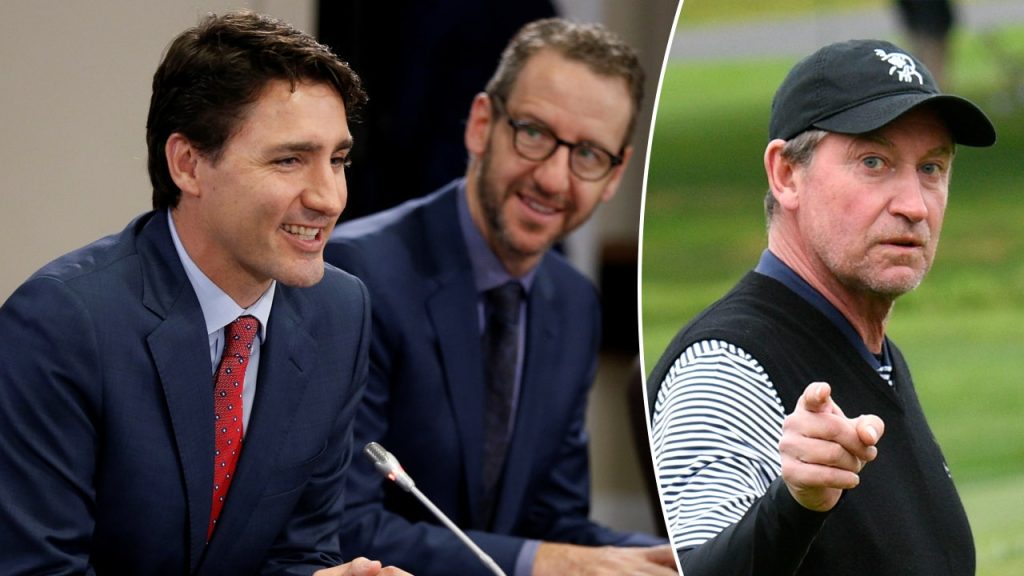The political future of Canadian Prime Minister Justin Trudeau hangs precariously in the balance, following the resignation of Finance Minister Chrystia Freeland and the ensuing speculation about Trudeau’s own imminent departure. Gerry Butts, Trudeau’s former chief advisor, has offered a pessimistic assessment, deeming it “unlikely” that Trudeau will lead the Liberal Party into the next election. Butts argues that Freeland’s resignation is a significant blow to the party and potentially signals the end of Trudeau’s political reign. He advocates for a genuine leadership race if Trudeau does indeed step down, emphasizing the need to assess potential candidates in a competitive environment to determine their true capabilities. This call for a leadership contest underscores the uncertainty surrounding the Liberal Party’s future direction and the potential for a significant shift in Canadian politics.
The political turmoil in Canada has attracted international attention, with former U.S. President Donald Trump adding fuel to the fire by suggesting NHL icon Wayne Gretzky as a potential replacement for Trudeau. Trump’s tongue-in-cheek remarks, posted on his Truth Social platform, further highlight the instability surrounding Trudeau’s leadership. While Gretzky himself has not expressed any political aspirations, Trump’s comments underscore the widespread perception of Trudeau’s vulnerability and the growing speculation about a change in leadership. This unexpected intervention from a foreign figure adds another layer of complexity to the already turbulent Canadian political landscape.
The resignation of Chrystia Freeland, a prominent figure within the Liberal Party, has triggered a cascade of events that threaten Trudeau’s hold on power. Her departure is seen as a major loss for the party, given her significant contributions and influence. The timing and circumstances of her resignation have fueled speculation about internal divisions and potential dissatisfaction with Trudeau’s leadership. The ensuing calls for Trudeau’s resignation and the potential for a vote of no confidence further amplify the sense of crisis within the Liberal Party and the Canadian government as a whole.
Adding to the pressure on Trudeau is the upcoming vote of no confidence, spearheaded by House of Commons Public Accounts Committee chair John Williamson. This vote, scheduled for consideration after Parliament reconvenes, poses a serious threat to Trudeau’s government. Williamson’s claim that the Liberal government no longer holds the confidence of Parliament reflects the growing dissent within the political landscape. The combined opposition from Conservative, Bloc Quebecois, and NDP members represents a formidable challenge to Trudeau’s authority and raises the possibility of a change in government. The outcome of this vote will significantly shape the future of Canadian politics and determine Trudeau’s fate as Prime Minister.
The confluence of Freeland’s resignation, calls for Trudeau’s resignation, Trump’s provocative comments, and the impending vote of no confidence creates a highly charged political atmosphere in Canada. The uncertainty surrounding Trudeau’s future has generated widespread speculation and debate about the direction of the Liberal Party and the country as a whole. The potential for a leadership change adds further intrigue to the situation, with potential contenders emerging from within the party. The next few weeks will be crucial in determining the course of Canadian politics and whether Trudeau can weather this storm or face a premature end to his premiership.
The Canadian political landscape is in a state of flux, with Trudeau’s leadership facing unprecedented challenges. The combination of internal dissent, external pressures, and the looming vote of no confidence paints a picture of instability and uncertainty. The coming weeks will be critical in determining the future of Trudeau’s government and the direction of Canadian politics. The possibility of a new leader, a new government, or a reshuffling of the political deck remains a real possibility, with significant implications for Canada’s domestic and international policies. The unfolding drama will undoubtedly captivate the nation and have ripple effects across the political spectrum.

